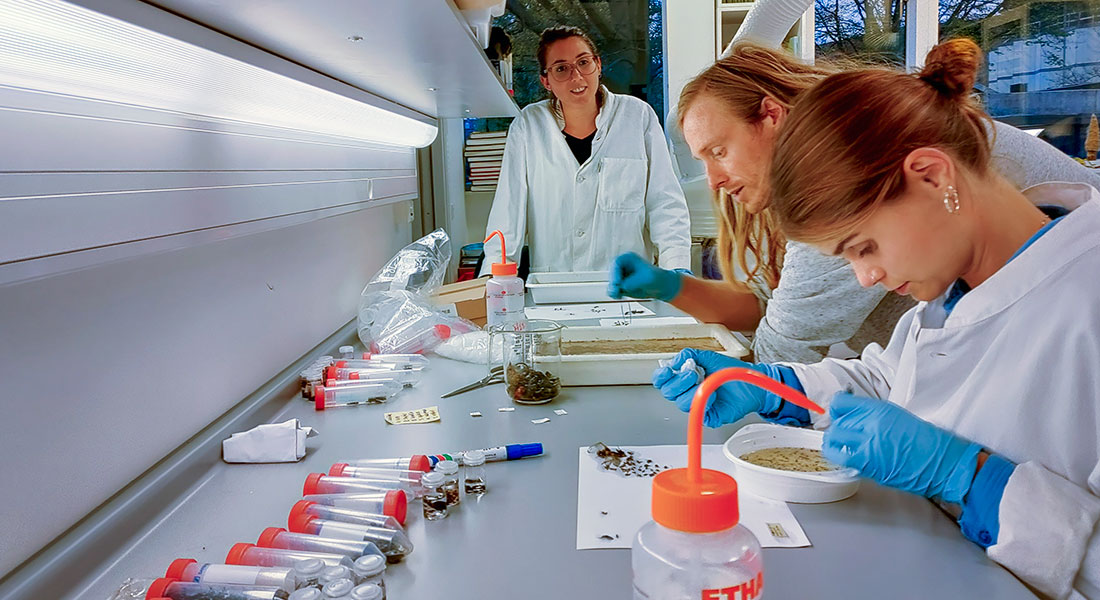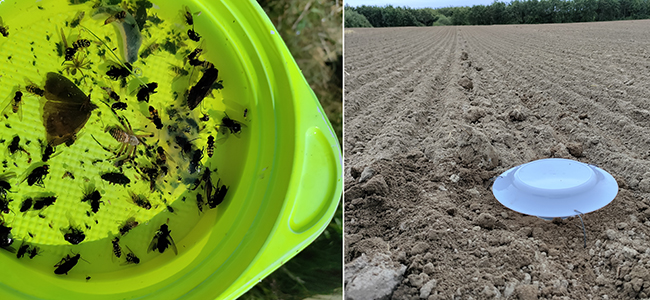The zoology laboratory
The zoology laboratory has workspace for 4 people and is a typical terrestrial-ecology laboratory for identification and sorting of invertebrates.

The laboratory is used for both identification and photography in connection with inquiry tasks and project assignments. The laboratory itself contains stereo microscopes, equipment for sorting, identification literature, ventilation for sorting alcohol preparations, storage equipment, and freezer options. The zoology laboratory also has an extensive collection of collection equipment and traps specially designed for insects and other small invertebrates.
The laboratory is regularly used by postdocs, PhD students, and students at all levels. The zoology laboratory has a dedicated team of insect experts associated, who all conduct research in the field of insect ecology and nature management. Here, the focus is particular on the effects of different management regimes, such as year-round grazing, unmanaged forests, heathland management, urban planting, afforestation, and the impact on insect diversity. Both morphological, DNA-based and machine learning techniques are used for species identification. There is a special focus on insect groups such as bees, hoverflies, crane flies, ground beetles, rove beetles, weevils, bugs, ants, and ground-dwelling insects as a whole.
Over the past five years, more than 30 BSc and MSc have used the zoology laboratory for sorting and species identification as part of their project. A significant number of BSc and MSc projects have focused on investigating the effects of various nature management actions on the diversity of insect taxa.

- Effects of heathland management on ground beetles and hoverfly diversity
- Effects of wildfire on ants and ground beetles
- Effects of managed vs. unmanaged forest on multiple insect taxa
- Effects of year-round grazing on different insect groups
- Effects of afforestation on ground-dwelling insects
- Effects of urban planting design on bees and other insects
- Pests in plantations
- DNA metabarcoding on bulk insect samples
- Remote sensing and image recognition of pollinators using machine learning algorithms
In recent years, IGN has contributed to comprehensive systematic and replicable insect collections in Denmark. The Zoology Laboratory ensures that all data are properly stored and preserved for future use. This allows for later studies, comparisons, and analyses of insect diversity and changes over time.

